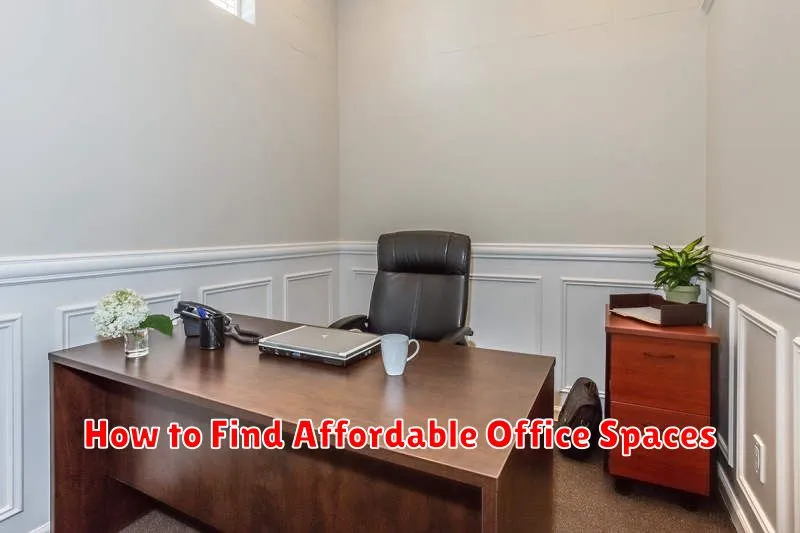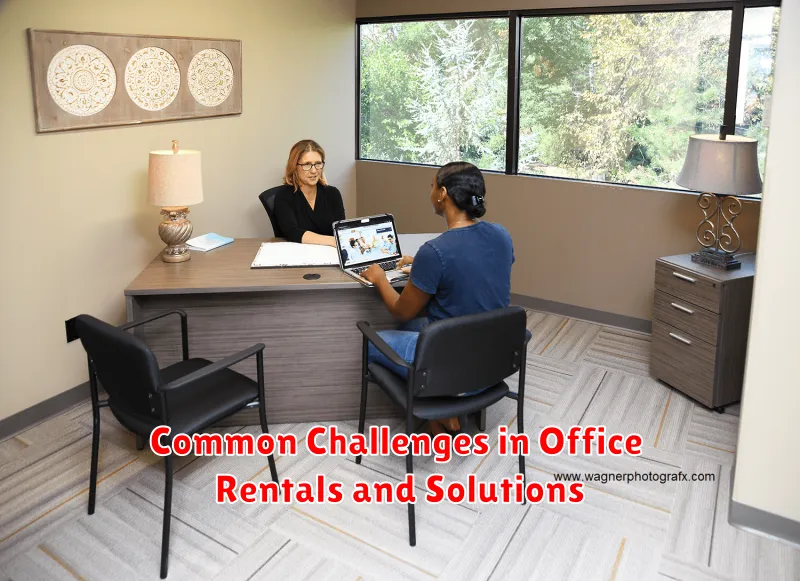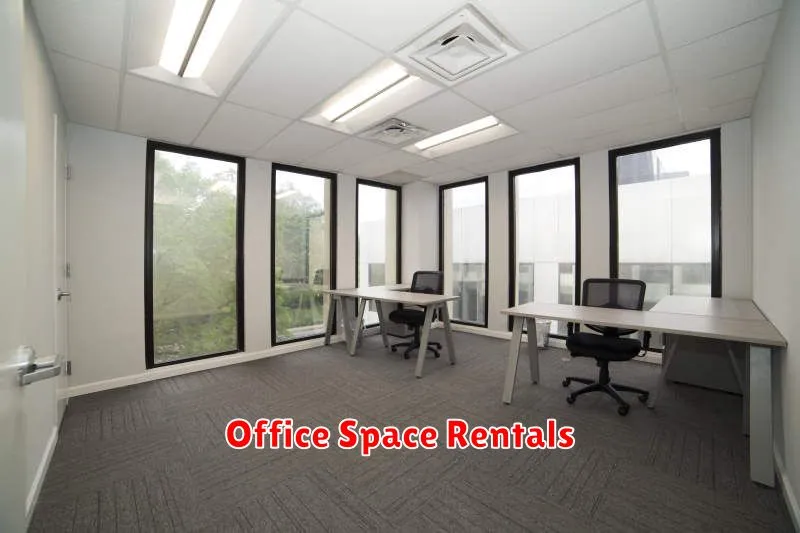Are you a small business owner searching for affordable office rentals? Finding the perfect workspace without breaking the bank can feel impossible, but it doesn’t have to be! This article explores the best strategies to secure cheap office space that meets your needs, from negotiating affordable leases to uncovering hidden gems in unexpected locations. Learn how to find budget-friendly office rentals that won’t compromise your business’s growth and success. Discover low-cost office spaces perfect for startups and established small businesses alike – let’s find your ideal affordable office solution!
Why Office Rentals Are Ideal for Small Businesses
For burgeoning small businesses, office rentals offer a compelling alternative to the significant upfront investment and ongoing responsibilities of purchasing a commercial property. This approach provides crucial flexibility and cost-effectiveness, allowing businesses to focus resources on growth rather than property management.
Scalability is a key benefit. As your business expands or contracts, you can easily adjust your rental space to match your needs. Need more room? Upgrade to a larger suite. Experiencing a slow period? Downsize to a smaller, more affordable option. This adaptability minimizes financial risks associated with long-term leases or owning property.
Furthermore, renting often includes amenities such as high-speed internet, shared meeting rooms, and reception services – features that could be costly to implement independently. This bundled approach reduces overhead and simplifies operations, allowing you to concentrate on your core business functions.
Finally, location, location, location! Office rentals offer access to prime business districts and strategic locations that may be financially out of reach for businesses seeking to purchase property. This prime placement can significantly enhance brand visibility and attract clients.
How to Find Affordable Office Spaces

Finding affordable office space for your small business can feel daunting, but with a strategic approach, it’s achievable. Start by defining your needs. How much space do you really require? A smaller space might suffice initially, allowing for growth later. Consider the location carefully; while a central location is desirable, it often comes with a higher price tag. Explore less central, yet still accessible areas to find better deals.
Flexibility is key. Consider options beyond traditional leases. Shared workspaces offer a cost-effective alternative, providing access to amenities and a professional environment without the commitment of a long-term lease. Virtual offices provide a business address and mail handling services without the need for a physical office space. These options are particularly beneficial for startups or businesses with remote teams.
Negotiate! Don’t be afraid to discuss your budget and needs openly with landlords or workspace providers. You may be surprised at the flexibility they offer. Look for incentives such as rent-free periods or reduced rates for longer-term leases. Thoroughly research the market and compare prices before committing to a lease. Utilize online resources and real estate agents specialized in small business rentals to broaden your search and find the best possible deal.
Finally, consider alternative spaces. Could you utilize a spare room at home, a co-working space, or even a cafe for certain tasks? By carefully evaluating your needs and exploring various options, you can successfully find affordable and suitable office space to support your small business’s growth.
The Role of Location in Choosing an Office
Choosing the right location for your small business office is crucial for success. It impacts everything from employee recruitment and retention to client accessibility and even overall business costs.
Accessibility is paramount. Consider proximity to public transportation, major highways, and parking options for both employees and clients. A conveniently located office can boost productivity and improve the overall client experience.
The local business environment also plays a significant role. Look for areas with a concentration of businesses in your industry or that cater to your target market. Networking opportunities and potential collaborations can significantly benefit your growth.
Costs associated with the location are equally important when considering affordable options. Factor in not only the rental price but also utilities, property taxes, and potential additional fees. While a prime location might seem attractive, a less central, but equally accessible and affordable location, could be a more financially sound choice for a small business.
Ultimately, the ideal location balances affordability with accessibility and strategic positioning within the market. Carefully weigh these factors to make an informed decision that supports your small business’s long-term growth and profitability.
Essential Amenities for Small Office Spaces
Finding affordable office rentals for small businesses is a priority, but don’t sacrifice essential amenities. A well-equipped space significantly impacts productivity and employee morale. Prioritize features that support your business operations and create a positive work environment.
Reliable internet is paramount. Slow or unreliable internet can severely hinder productivity. Ensure your potential office space offers high-speed, stable internet access, ideally with multiple providers as a backup option. Consider the internet speed offered and the contract terms.
Sufficient power outlets are crucial, especially with multiple devices and computers. Assess the number of outlets available and their placement. Lack of sufficient power can be a major inconvenience, potentially requiring expensive and disruptive solutions.
Adequate lighting is important for both employee well-being and productivity. Natural light is ideal, but ensure sufficient artificial lighting is available to prevent eye strain and fatigue. Consider the quality and intensity of the lighting.
Comfortable and ergonomic furniture is vital for employee comfort and health. While renting, consider whether the space already provides adequate chairs, desks, and storage solutions, or if you’ll need to factor these costs into your budget. Investing in ergonomic chairs is a worthwhile investment for long-term employee health.
Finally, HVAC (Heating, Ventilation, and Air Conditioning) is essential for a comfortable workspace year-round. Confirm the functionality and efficiency of the HVAC system to ensure a productive work environment, especially in extreme temperatures.
By focusing on these essential amenities, you can secure affordable office rentals that are also highly functional and conducive to a productive work environment for your small business.
Tips for Negotiating Rental Agreements
Negotiating a rental agreement can be crucial for securing affordable office space for your small business. Here are some key tips to help you get the best deal:
Know your market: Research comparable office spaces in your area to understand the average rental rates. This gives you a solid baseline for negotiations.
Be prepared to walk away: Having other options or the willingness to walk away strengthens your negotiating position. Don’t be afraid to say no to an unfavorable deal.
Negotiate the lease terms: Don’t just focus on the rent. Consider negotiating aspects like the lease length, renewal options, and included utilities. A longer lease might secure a lower monthly rate.
Clarify all expenses: Ensure the rental agreement clearly outlines all associated costs, including property taxes, insurance, and maintenance fees. Avoid hidden costs.
Get everything in writing: All agreed-upon terms, including concessions, should be explicitly stated in the written lease agreement. Review it thoroughly before signing.
Consider a shorter lease: For startups or businesses with uncertain futures, a shorter lease term can offer flexibility, though it might mean paying slightly higher rent.
Utilize your leverage: If you’re a desirable tenant with a strong credit history and a stable business, you can leverage this to negotiate better terms.
By following these tips, you can significantly improve your chances of securing a favorable and affordable office rental agreement for your small business.
Understanding Shared Office Space Options
For small businesses, shared office space offers a compelling alternative to traditional leases. It provides a cost-effective solution, avoiding the hefty upfront costs and ongoing expenses associated with a private office.
Several options exist within the shared office space market. Co-working spaces are popular, offering a collaborative environment with shared amenities like meeting rooms, internet access, and printers. These spaces often cater to freelancers and startups, fostering a sense of community.
Virtual offices provide a business address and mail handling services without requiring a physical workspace. This is ideal for businesses that primarily operate remotely but need a professional presence. Some virtual office providers also offer access to shared meeting rooms on an as-needed basis.
Shared suites offer a more private arrangement than co-working spaces. Several small businesses may share a larger office suite, dividing the cost among themselves. This option offers a balance between affordability and privacy.
Choosing the right shared office space depends on your business’s specific needs and budget. Consider factors like location, amenities, lease terms, and the overall atmosphere before making a decision. Carefully comparing options will help you find the perfect fit for your small business.
Common Challenges in Office Rentals and Solutions

Finding affordable office space for a small business can be tricky. One common challenge is high rental costs, especially in desirable locations. Solutions include exploring less central areas, considering shared office spaces, or negotiating flexible lease terms.
Another hurdle is hidden costs. These can include utilities, property taxes, insurance, and maintenance fees, which can significantly impact your budget. To overcome this, carefully review the lease agreement, request a detailed breakdown of all associated costs, and factor them into your budget from the start. Don’t hesitate to negotiate these expenses if possible.
Lease terms can also be a major issue. Long-term leases lock you into a contract that might not align with your business’s growth trajectory. Solutions involve looking for flexible lease options, short-term rentals, or month-to-month agreements, though these might come at a slightly higher cost per month.
Finding office space that meets your specific needs regarding size and amenities is also crucial. Solutions include thorough research, utilizing online real estate portals, and working with a commercial real estate broker to find the ideal space that fits your requirements and budget.
Finally, competition for suitable office spaces can be fierce, especially in popular areas. Being proactive, contacting landlords directly, and being prepared to move quickly when you find a suitable space are vital strategies for success. Consider expanding your search area to increase your options.
Conclusion: Finding the Right Office for Your Business
Finding the right office space is crucial for small businesses. It’s a balancing act between affordability and functionality. This means carefully considering your budget, team size, and business needs.
Remember, the ideal office isn’t just about the rent price; it’s about the overall value. Factors like location, amenities, and lease terms all contribute to a successful and productive workspace.
By thoroughly researching options and carefully weighing your priorities, you can find an affordable and suitable office space that supports your business growth and long-term success. Don’t rush the process; take the time to find the perfect fit for your company.

